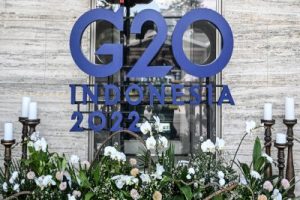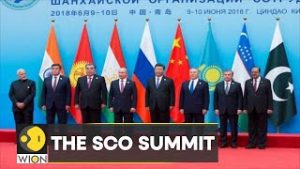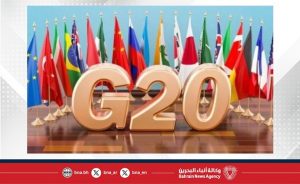
The common refrain by those examining the multilateral institutions and organizations seeking greater collaboration at the global level are: ‘legitimacy’ and ‘effectiveness’. Now the fact is these characteristics apply to the national and subnational levels as well, but they are a consistent refrain at the international level, especially in light of the geopolitical tensions in the international system.
A number of my colleagues have recently focused on what I consider the key global informal governance institution, the G20. These colleagues focus on both critical characteristics with somewhat different views. First there is Danny Bradlow and Robert Wade. Danny Bradlow is a Senior Research Fellow, Centre for Advancement of Scholarship, University of Pretoria and Senior G20 Advisor to South African Institute of International Affairs. Robert H. Wade, is co-author on this piece, and is a Professor of Global Political Economy, London School of Economics. Both have participated in various CWD events. In a piece in Global Policy entitled, “How to Fix the Representation Problem of the G20” the co-authors described briefly the G20. Some of that is worth repeating:
“The G20 is an informal gathering, which claims to be “the premier forum for international economic cooperation”. It was established at finance minister’s level in the wake of the East Asian financial crisis of the late 1990s, and upgraded to summit level, with the same membership, in the wake of the global financial crisis of 2008-2009. The summit is held annually, under the leadership of a rotating presidency.”
“The membership comprises 19 of the “weightiest” national economies plus the European Union and the African Union. The 19 national economies include the G7 (US, Japan, Germany, UK, France, Italy, Canada), Australia, plus China, India, Indonesia, Republic of Korea, Russia, Turkey, Saudi Arabia, South Africa, Mexico, Brazil, Argentina. The group, which includes about 10% of the states in the world, accounts for 67% of the world’s population, 85% of global GDP, and 75% of global trade.”
It is in size and the weight of membership the most formidable of what I call the Informals which includes at least the G7, the BRICS+ and the G20. When it then comes to an evaluation of this key Informal the authors suggest:
“The G20 has had a mixed record. It has an intense work programme focused on addressing many of the most significant international economic, financial, environmental and social challenges. The consistency in G20 membership has proven to be an advantage because it helps foster a sense of familiarity and understanding at the technical level among the permanent members, which is helpful in times of crisis and in dealing with complex problems.”
“But its exclusivity and informal status has limited its ability to address these challenges. This is particularly because in many cases an effective response requires agreement and action by all states.”
“Over time, as tensions in international relations have grown, the shortcomings in the structure of the G20 have become more evident. Despite its economic weight, the G20 has a basic legitimacy problem. It is a self-selected group whose members, except for the African Union and the European Union, represent only themselves.
What these authors then suggest, in light of their view that legitimacy is lacking is to adopt a model being used, in this case, at the Financial Stability Board, the FSB:
“It has established six Regional Consultative Groups (RCGs), one each for the Americas, Asia, Commonwealth of Independent States, Europe, Middle East and North Africa, and Sub-Saharan region. The objective is to expand and formalize the FSB’s outreach activities beyond the G20 membership and better reflect the global character of the financial system.”
They conclude their examination with this perspective:
“Applying the FSB model to the G20 would allow the current members of the G20 membership to continue, while obliging them to establish a consultation process with regional neighbours, thereby creating a limited form of representation for all the world’s states. It would also establish a limited form of G20 accountability towards the international community.”
It is evident that these authors believe the problem for the G20 is a lack of wide representation and apparently the need to enlarge G20 representation. Yet it is somewhat surprising that these two colleagues target representation. I’ve always been of the view that you go with the members you have and seek to move ‘the policy dials’. Whether it is multilateral or minilateral or plurilateral, in an ideal world we would probably enlarge representation but we have learned all too unhappily that universal representation is not necessarily a solution to effective policy action.
Two other colleagues seem less inclined to see representation as the most serious impediment to advancing G20 policymaking. Indeed these co-authors underscore the critical value of the G20. So, my CWD colleague and lead co-leader, Colin Bradfrord, a Nonresident Senior Fellow of the Global Economy and Development Program at Brookings and his colleague, Brahima Sangafowa Coulibaly who is vice president and director of the Global Economy and Development program at Brookings have joined together to examine the G20 role in, “Strengthening Cooperation for a Changing World: The Evolving Role of the G20 in Global Economic Governance”, a special brief for Brookings and in fact Brookings held a session with a number of esteemed panelists in Washington at the margins of the ‘Spring Meetings’ to examine the G20. As they argue in their Executive Summary:
“While there are areas for improvement, a review of the G20’s evolution highlights a remarkable transformation. From an ad hoc response to the GFC [GlobalFinancial Crisis], it has evolved into a central pillar of international cooperation—shaping global trajectories across finance, economics, technology, health, climate, and society. After 18 years of experience, involving tens of thousands of politicians, policymakers, and societal leaders throughout each year, the G20 has demonstrated that it is indeed “fit for purpose” at this crucial moment of competing perspectives on the global future.
“Indeed, the world is undergoing one of the most profound transformations in global economic relations and facing the greatest test of international governance since World War II. In this context, the G20 has proven to be an indispensable platform—not only through its annual leaders’ summits but also through its multilayered, yearlong process involving ministers, sherpas, senior officials, and civil society leaders across a wide range of sectors. Its ability to convene nations with vastly different cultures, interests, and perspectives—and to keep them at the table despite tensions, rivalries, or even war—is one of its greatest strengths. The G20 serves as a vital arena where global governance plays out in real time amid deep uncertainty and geopolitical strain.”
Are matters perfect, of course not. And the authors are alert to point to the limitations:
“Despite its past success, there is room to enhance the G20’s effectiveness and impact. Key areas for improvement include strengthening personal dynamics among leaders; enhancing continuity and sustained engagement; improving public communication and domestic outreach; and restoring public confidence in leadership and markets. To bolster its credibility, the G20 should also revisit practices from its most effective years—particularly the use of action-oriented communiqués with clear timelines.”
Critically on the plus side the G20 has a significant element of inclusiveness – at least politically. Not only do you have all the members of the G7 but you also have all the original BRICS members, Brazil, Russia, India, China and South Africa. Critical in my mind, and it seems to be as well for the co-authors, the G20 includes many key actors from the Global South:
“Third, around the same time, the rise of large, dynamic emerging market economies (EMEs) dramatically altered the global economic landscape, reducing the long-standing dominance of the West—namely the United States and Europe—and ushering in a more pluralistic world. This shift integrated key non-Western powers, such as China and Russia along with influential voices from the Global South, into global economic decisionmaking, injecting realism along with tensions into the global governance system.”
In addition, and to aid continuity from year-to-year for the G20 in the face of passing of the presidency to the next G20 member, the co-authors point to the Troika:
“Each annual summit marks a formal transition between presidencies, but continuity is ensured through a “troika” system, comprising the past, current, and incoming hosts. At the outset of a presidency, the host country announces its priorities, which are then integrated with ongoing legacy issues. Together, these form the foundation of the annual work plan, which is refined during the first sherpa and deputies’ meetings— typically held in December and January—and officially endorsed at the first finance ministers’ meeting. This process sets the structure for and establishes working groups and ministerial responsibilities.”
Is it perfect, no. Indeed in the recommendations section the co-authors suggest adding more members to enhance continuity. But the co-authors pay attention to the structure, what I’ve referred to as the ‘Iceberg Theory’ of the G20. The Iceberg is the significant structure of political and administrative actors carrying on the year to year work, maintaining a critical element of continuity, to move policy actions forward:
“This expansive framework highlights the G20’s evolution into a dynamic platform for global governance with broad consultations that extend well beyond its core membership. G20 summits are not simply a two-day gathering of world leaders; they are the culmination of a yearlong process involving a wide array of ministerial meetings, working groups, and civil society dialogues aimed at steering the global economy and addressing 21st century challenges.[In fact the significant structure of Ministerials, Working Groups and Task Forces can be reviewed here at the Global Summitry Project (GSP) website].
Is it enough? Well, here you have to be a bit cautious. Overall, the representation and structure of today’s G20 seems adequate but with respect to ‘effectiveness’ – collective concerted collaboration – there is still a distance to go. Very much so. The co-authors in fact also urge the following:
- “Strengthen personal dynamics among leaders
- Enhance continuity and sustain engagement
- Improve public communication and domestic engagement
- Restore public confidence in leadership and markets”
All of that would be useful but collective determined policymaking – advancing action on climate change and climate financing, debt management and relief, global development and many more subjects – remain seemingly unreachable at the moment.
And now, with the completion of the South Africa year we come to the end of the first cycle of G20 countries. That means that the United States is scheduled to return to hosting in 2026. The Trump administration’s distaste for multilateral actions including debt support, climate change, global development are all too evident. While there was talk in fact of the Trump administration deciding not to take up leadership for 2026, that may not be what the Trump administration is deciding to do at the moment. I wonder which is better however: with, or without, the US? I’m not sure. Some see the Summit collapsing without US involvement. But US hosting, with a Trump administration, may collapse forward movement in key global governance policies. There is at the moment no definitive answer. But there will be more to come on this.
Credit Image: Bahrain
This Post originally appeared asa Substack Post at Alan’s Newsletter: https://globalsummitryproject.substack.com/p/g20-collaborative-actions-with-or

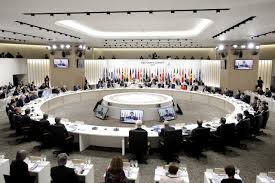
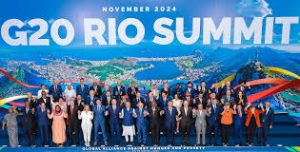
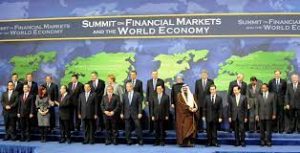 It is really not possible to begin this Substack Post without a quick glance at the first US Presidential debate of 2024. It was ugly. It was a tough night, especially for President Biden but I will let the political pundits to have their say.
It is really not possible to begin this Substack Post without a quick glance at the first US Presidential debate of 2024. It was ugly. It was a tough night, especially for President Biden but I will let the political pundits to have their say.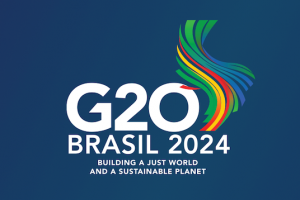 Who would think that the threat to the global order could emanate from global summitry leadership. But that appears to be a real possibility. Let me explain.
Who would think that the threat to the global order could emanate from global summitry leadership. But that appears to be a real possibility. Let me explain. Doing some quick catch up on the APEC Summit that was held between November 11th and 17th in San Francisco. The main event, as it turned out, was the much discussed bilateral summit between China’s Xi Jinping and US President Joe Biden. While the Indo-Pacific Economic Framework for Prosperity (IPEF) meetings to receive some attention – more for what didn’t happen than what was secured – the APEC gathering activity was dominated by US-China Bilateral Summit and there was some attention paid to the other bilateral Summit of note that between President Xi and the Japanese Prime Minister Fumio Kishida.
Doing some quick catch up on the APEC Summit that was held between November 11th and 17th in San Francisco. The main event, as it turned out, was the much discussed bilateral summit between China’s Xi Jinping and US President Joe Biden. While the Indo-Pacific Economic Framework for Prosperity (IPEF) meetings to receive some attention – more for what didn’t happen than what was secured – the APEC gathering activity was dominated by US-China Bilateral Summit and there was some attention paid to the other bilateral Summit of note that between President Xi and the Japanese Prime Minister Fumio Kishida.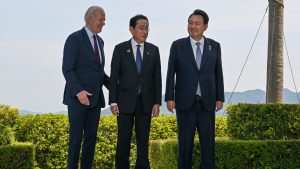
 So, the International Studies Association (ISA) just concluded in Montreal
So, the International Studies Association (ISA) just concluded in Montreal